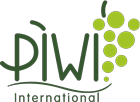D
The decision is part of a wider revision of previous regulations that established common quality schemes, market organisations, definitions, descriptions, presentation and labeling for European agricultural and food products.
Following a recent change in EU rules, member states are now allowed to use resistant varieties in the production of protected designations of origin (PDO) wines.
The decision, published last week in the Official Journal of the European Union, is part of a wider overhaul of previous regulations that laid down common quality schemes, market organisations, definitions, descriptions, presentation and labeling for European agricultural and food products.
Previously, only grape varieties of the species Vitis vinifera could be used for PDO wines produced in the EU, while grape varieties showing genetic traces of non-Vinifera species, such as fungus-resistant PIWI varieties, were excluded.
However, under the updated regulations, Member States can now use vine varieties belonging to Vitis vinifera and hybrids containing genetic material from both Vitis vinifera and non-Vinifera vine varieties of American and Asian origin.
The EU's decision is a reaction to the challenges of climate change and is intended to help make European viticulture more sustainable. Indeed, a number of hybrid varieties are more resistant to common diseases such as downy and powdery mildew, so the vineyards require little or no treatment, be it with chemical pesticides or ecologically approved copper sprays.
Resistant varieties offer a number of advantages and no disadvantages, apart from a small commercial challenge arising from a market segment that will only ever drink certain PDO wines,” says Werner Morandell from Weingut Lieselehof, who already makes table wines from PIWI grapes Made in South Tyrol, Italy.
First of all, most PIWI grapes do not need any treatments in the vineyard, apart from some difficult vintages where they might need a treatment or two. Of the 70 or so PIWI grapes I was able to examine, maybe 15 need a treatment or two. But even with these, it really depends on the region. In a dry place like Sicily, where a vinifera vine needs no more than five or six treatments a year, none of these PIWI grapes need a treatment.
Other benefits, according to Morandell, include less soil compaction and a significant time saving for the grower: “If you drive a heavy tractor through the vineyards 15 or 20 times a year, the soil ends up being very compacted. It becomes like concrete. But if you walk through my vineyards, you can see that the soil is really soft. Finally, the time winemakers normally spend worrying about when the next time they need to tractor apply poison can be used for more meaningful work.
Source: decanters

